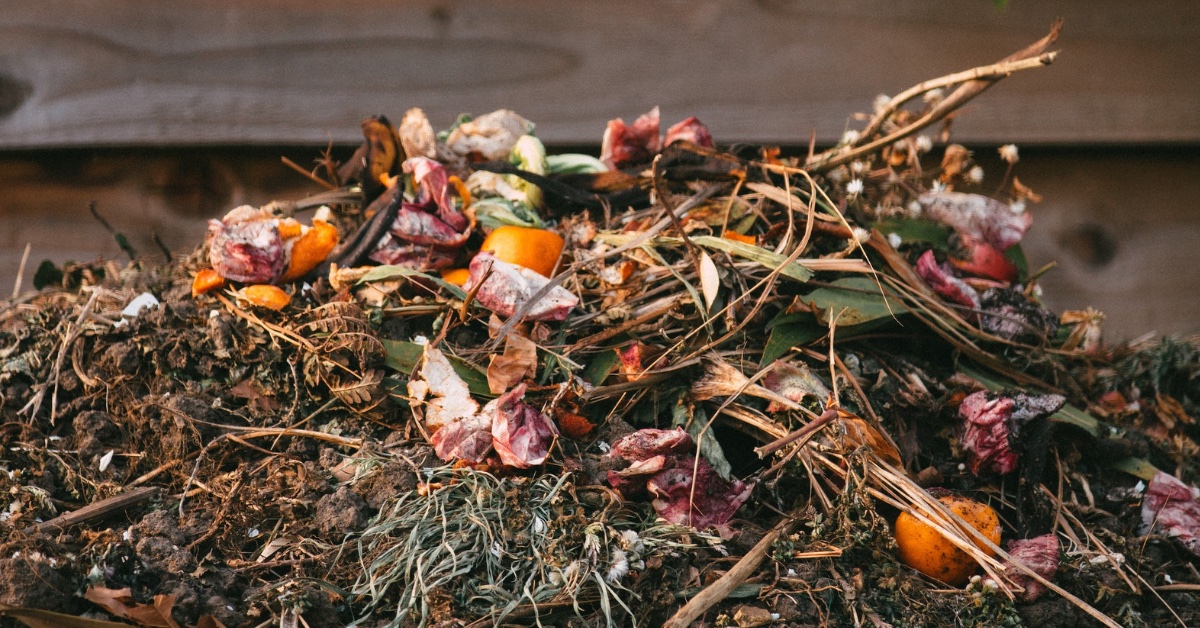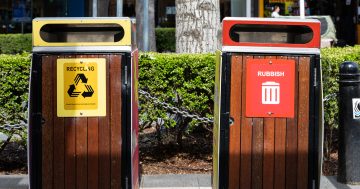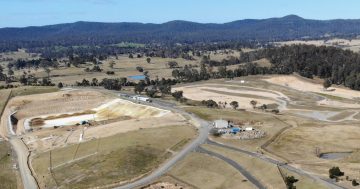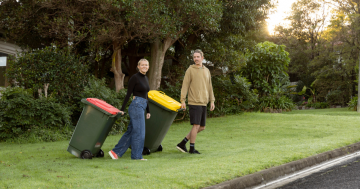
New EPA rules mean only food scraps and garden waste are allowed in Bega Valley Shire residents’ green bins. Photo: BVSC.
The decision to change the rules around the Bega Valley’s popular organic waste program has left the shire’s council disappointed and concerned it has resulted in a significantly different service from the one it started four years ago.
The FOGO (Food Organics Garden Organics) bin-emptying program began in the shire in 2018 and is a food and garden organic waste collection service that diverts such material away from landfill to create compost.
The rule for what could go into the green-lid bins used to be that it just had to have once been living; from meat, bones and dairy, tissues and kitty litter, to vegetable scraps and garden clippings.
Part of the reason the council began the service was that, on average, 38 per cent of red-bin content is food that can be composted.
But the NSW Environmental Protection Authority (EPA) is now introducing new regulations around what can and can’t be placed in the bins.
Bega Valley Shire Council’s waste services manager Alan Gundrill said the unexpected development prohibited the disposal of many items that used to be allowed under FOGO.
“This is a major departure from the FOGO service we delivered four years ago and as proud leaders in community-wide organics recycling, we are disappointed at the EPA’s decision,” Mr Gundrill said.
“Ultimately this will lead to more resources ending up in our rapidly filling landfill facility – resources that through our commercial composting facility are able to be turned into a valuable commodity.”
Mr Gundrill said residents and businesses with a FOGO service would only be allowed to dispose of organic kitchen scraps and garden waste under the new regulations.
“This means items such as food-soiled paper and cardboard packaging, certified compostable packaging and cups, teabags, tissues, coffee filters, vacuum cleaner dust, hair, animal droppings and cat litter will no longer be permitted,” he said.
“These items must now go in the red-lid landfill bin. The only permitted exception is the use of certified compostable bags, or paper for lining kitchen caddy bins.”
Mr Gundrill said the EPA had cited a number of reasons for the change in rules.
“Specific concerns had been raised about the long-term impacts of accumulated bio-plastics and substances commonly used in the manufacture of compostable food packaging,” he said.
“We take quality control of our compost products seriously and through hand-sifting and regular testing, we are proud to have a high-quality product with very low contamination levels.”
But there was an upside to these changes, Mr Gundrill said. He thought it would lead to the improvement of an already great product as well as simplified bin use rules, which would make it easier for the community to recycle their food and garden waste.
For more information on the new FOGO regulations, visit the NSW EPA website.














